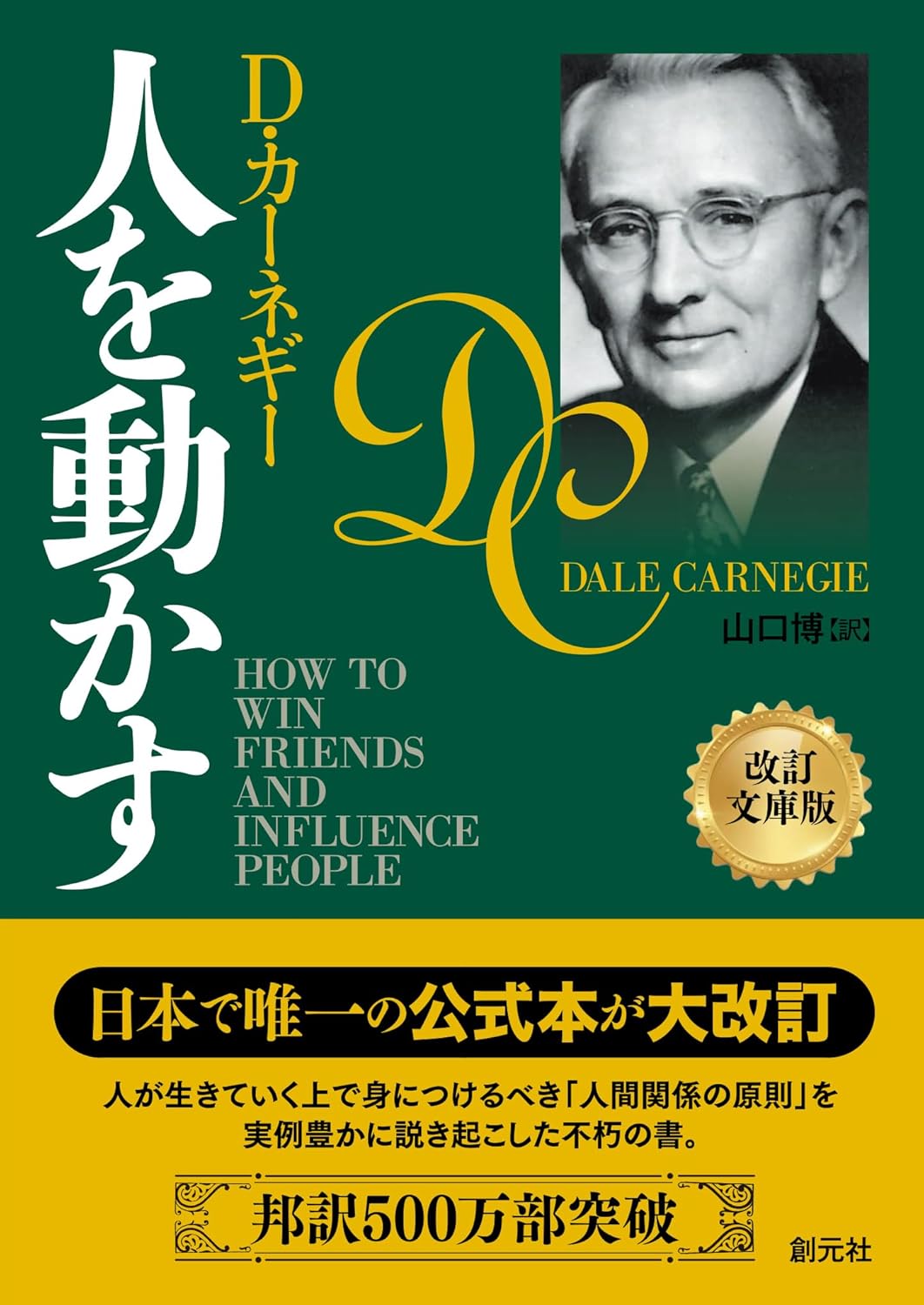- Published on
Why can't you reach your words? Learning from D. Carnegie's "Moving People": Unchanging Principles to Win the Heart
Introduction: We win the debate and lose people
"That's not" "You're wrong"
We simply pull out the blade of criticism because we want to prove ourselves right. But have you ever imagined how deeply the blade could hurt someone else's self-esteem? Benjamin Franklin once saw through. "While we are debating or refuting, we may be able to beat the opponent. But that is a futile victory - because we will never be able to win the favor of our opponent."
In this article, we unravel Dale Carnegie's timeless masterpiece, "Moving People," written more than 80 years ago, and explore why our words pass each other, and how we can truly move people's hearts and build a bond called trust.
Principle 1: Putting the blade called criticism
"Searching for someone else's fault is useless. They will quickly set up a defensive system and try to justify themselves."
Carnegie cites the main principle of moving people: "no criticism or criticism, and not complaining." This is because the anger aroused by criticism simply deprives the other person of their will and closes their hearts, and does not produce any good results. The great businessman John Wanamaker recalls: "Thirty years ago, I realized that scolding others was the cruelty of foolishness."
Beating an opponent with a right argument is nothing more than self-satisfaction. If you really want the other person to change, you need to be prepared to let go of the simplest means of criticizing. Just as Lincoln didn't post an angry letter to the general who had committed a blunder on the battlefield. He knew. That harsh criticism is of no use.
Principle 2: Give rewards in the name of "importance"
So, what should we do instead of criticism? The answer lies in the most fundamental desires that humans have. This is what philosopher John Dewey calls "the desire to become an important person."**.
Everyone wants to be recognized as a valuable person. Satisfying this craving in our hearts is the most powerful secret to moving people.
Charles Schwab, who built up a huge fortune as one of the arms of steel king Andrew Carnegie, shares the secret to his success: "I have the ability to inspire others' enthusiasm. I think this is an irreplaceable treasure for me. Praise and encourage others' best way to develop the strengths of others."
He never criticized anyone even if he didn't like him, and instead found a good point and "he wholeheartedly agreed and generously praised him." It's not a cheap flattering thing. To truly recognize the value of the other person's existence and communicate it. By generously giving this reward of "self-importance," people want to move themselves.
Principle 3: The key to opening the other person's heart is the "listening" attitude
Are you trying to spread your own opinions and convince others? Carnegie asserts that it is counterproductive. Rather, "Let the other person speak enough. They know the other person best.".
People give their hearts to those who listen enthusiastically to their stories. Just as Carnegie, who visited a botanist, was praised as a "very interesting talker" after listening to plants with enthusiastic attention, being a listener is the key to the magic that opens up the other person's heart.
Go one step further, see the other person's interests and start a conversation from there. The story of a salesman who seduces him over the topic of "signed checks" that he is eagerly bringing together the bakery president who has been unable to sign even after four years of chasing him, eloquently tells the effectiveness of this principle. "When talking to someone, talk about them yourself. Then they will listen to you for hours," Disraeli's words are a timeless truth.
Principle 4: People love ideas that they "invent themselves" more than anything else
When we persuade others, we tend to inject our ideas on them. However, "the feeling of being forced on others or being ordered is something that anyone would dislike."
A good leader never orders. Instead, I ask a question. "This might make me even better, but what do you think?" This way, make the other person think independently and make the idea seem "your own." said French philosopher La Rochefeucault. "If you want to make enemies, it's best to beat your friends. If you want to make friends, it's best to make friends."
Give the other person a flower and make them feel like they have made their own decision. This production is the driving force behind the other person's self-esteem and helping them to be willing to cooperate. A good example of this principle is the story of a doctor who wrote a letter to an expert in X-ray equipment saying "I'd like to hear your opinions." The doctor was not sold, but "buyed" of his own volition.
Conclusion: What a drop of honey brings
Lincoln said. "A drop of honey gets more flies than a bucket of bitter juice"
The principle of "moving people" may be summed up in this one word. It's not the bitterness of criticism, but the honey is praise and encouragement. Empathy is trying to understand the other person's position rather than assert their own righteousness. These are not tricky techniques. It is a deep, warm gaze towards the very existence of human beings.
In today's world where everyone can become critics on social media, are we not putting up too easily criticizing it? This masterpiece, more than 80 years ago, poses quietly but powerfully questions our relationships in this moment.

